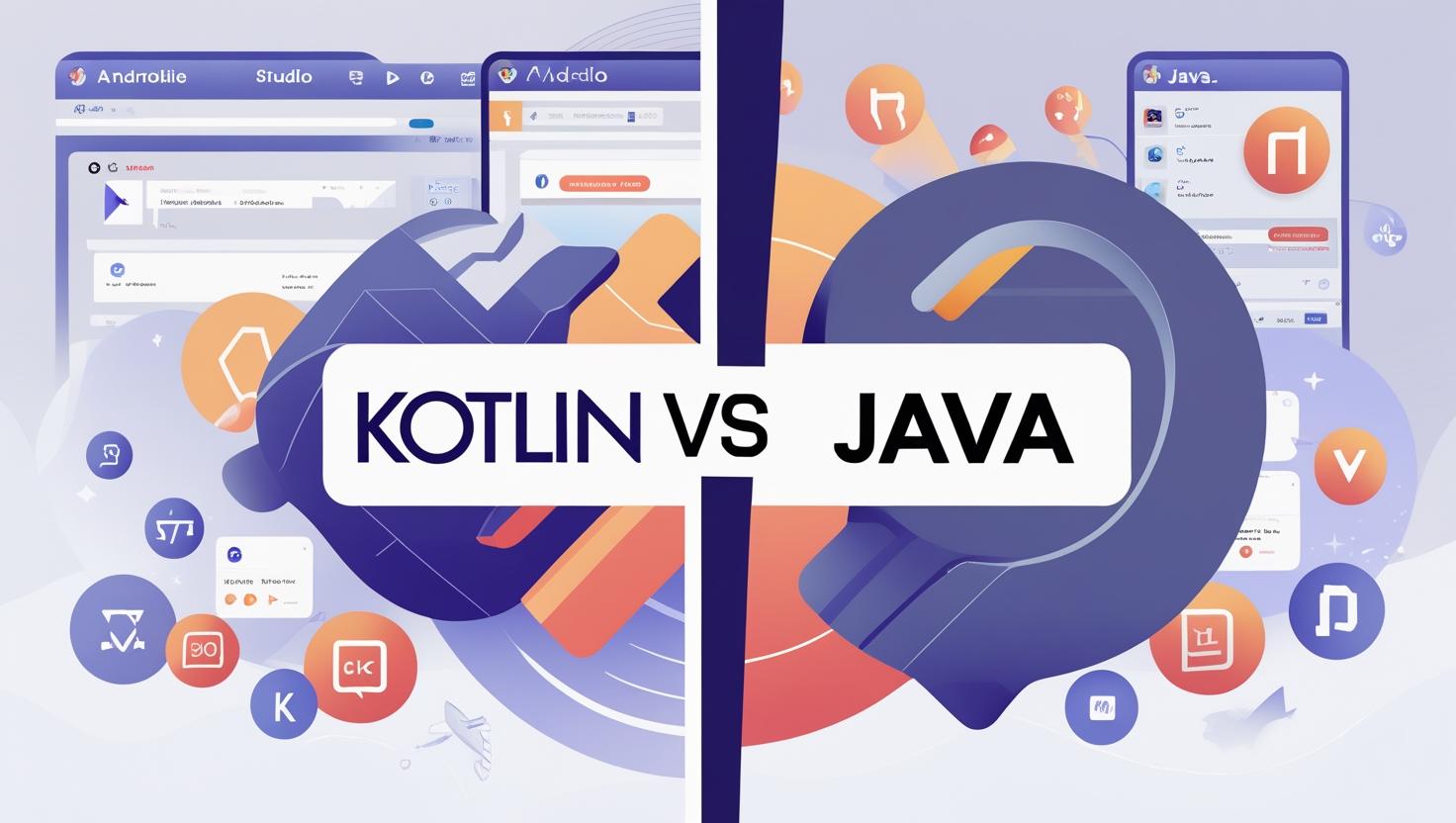Introduction
Choosing between Kotlin and Java for Android development is still a hot topic, even in 2025. While Java laid the foundation of Android, Kotlin has rapidly become the preferred language, endorsed and promoted by Google itself.
But does that mean Java is obsolete? Is Kotlin truly superior in every way?
In this blog, we’ll compare Kotlin vs Java for Android development in 2025, examining everything from performance to tooling, job demand, and future outlook.
1. Popularity & Community Support
Kotlin:
-
Kotlin is now the default language for Android.
-
Supported directly by Google since 2017.
-
Huge ecosystem of libraries and Jetpack Compose-first components.
Java:
-
Still widely used in legacy Android codebases.
-
Massive community and documentation.
-
Newer Android devs are shifting away, but Java remains relevant in enterprise apps.
✅ Winner: Kotlin — but Java is still very active, especially in backend or hybrid teams.
2. Syntax & Developer Productivity
Kotlin:
-
Concise and expressive.
-
Null safety reduces crashes.
-
Extension functions and coroutines simplify async code.
Java:
-
Verbose by comparison.
-
No native support for coroutines (uses
CompletableFuture, etc.). -
Boilerplate-heavy.
✅ Winner: Kotlin — clean, modern, and fast to write.
3. Performance
Both Kotlin and Java compile down to bytecode and run on the JVM, so performance is generally similar. However:
-
Kotlin sometimes has a slightly larger binary size and slower compile times.
-
Java may have an edge in raw performance for compute-heavy apps.
✅ Winner: Draw, but Java is still slightly better for performance-sensitive use cases.
4. Android Studio & Tooling
-
Kotlin is first-class supported by Android Studio.
-
Features like Jetpack Compose, Hilt, and Navigation are Kotlin-optimized.
-
Java still works, but often lacks advanced tooling (e.g., Compose Preview, Live Templates).
✅ Winner: Kotlin, especially for modern UI and Jetpack features.
5. Future Outlook
-
Kotlin Multiplatform (KMP) is gaining traction for shared codebases (Android + iOS).
-
Google is pushing more features with Kotlin-first support.
-
Java remains key in backend and older codebases, but not future-facing in Android.
✅ Winner: Kotlin — the future of Android development is Kotlin-native.
6. Learning Curve
-
Kotlin is easier if you're coming from JavaScript, Swift, or modern languages.
-
Java might feel easier for those with a CS background due to textbook usage.
✅ Winner: Depends on background, but Kotlin is more beginner-friendly today.
7. Job Opportunities in 2025
-
Kotlin jobs dominate Android-specific listings in 2025.
-
Java is still in demand in full-stack, legacy, and enterprise development.
✅ Winner: Kotlin, if you're targeting modern Android jobs.
Kotlin vs Java: Quick Comparison Table
| Feature | Kotlin ✅ | Java ❌ |
|---|---|---|
| Google Official Support | ✔️ | ✔️ |
| Null Safety | ✔️ | ❌ |
| Jetpack Compose Support | ✔️ (Full) | ❌ (Limited) |
| Syntax | Concise | Verbose |
| Community Size | Growing | Mature |
| Performance | Good | Slightly Better |
| Multiplatform Support | ✔️ (KMP) | ❌ |
Conclusion: Kotlin Wins for Android in 2025
While Java remains a strong and reliable language, Kotlin has clearly taken the lead in the Android ecosystem by 2025. With Jetpack Compose, coroutines, and multiplatform capabilities, Kotlin is the future-facing choice for Android developers.
✅ If you're starting Android development today — go Kotlin.
🧰 If you're maintaining legacy systems — Java still has its place.
What Should You Do?
-
New developer? Learn Kotlin first.
-
Experienced Java dev? Start mixing Kotlin in your existing projects.
-
Building modern UI with Compose? Kotlin is non-negotiable.
